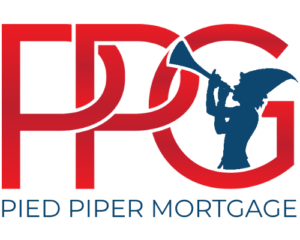What is a home equity loan? It’s a financial option that allows homeowners to borrow against the equity they’ve built in their property. This type of loan can provide access to funds for various needs, whether it’s home improvements, consolidating debt, or covering unexpected expenses. With Pied Piper Mortgage, you can find home equity loan solutions designed to fit your financial goals, helping you leverage your home’s value effectively.
How Does a Home Equity Loan Work?
Home equity loans are secured loans, meaning they are backed by the borrower’s property. The loan amount is based on the difference between the home’s current market value and the outstanding balance of any existing mortgages. Lenders typically allow homeowners to borrow up to 80-85% of their home’s equity, although this percentage can vary.
When you take out a home equity loan, you receive a lump sum that you repay over a fixed term, usually between 5 and 30 years. The loan comes with a fixed interest rate, which means your monthly payments remain consistent throughout the life of the loan.
Key Terms and Concepts
- Home Equity: The market value of your home minus the amount you owe on your mortgage.
- Lump Sum: The total amount of money you receive when you take out a home equity loan.
- Fixed Interest Rate: An interest rate that remains the same for the duration of the loan term.
- Loan-to-Value Ratio (LTV): The ratio of the loan amount to the appraised value of the property.
Benefits of a Home Equity Loan
- Fixed Interest Rates: Home equity loans typically come with fixed interest rates, providing stability and predictability in monthly payments.
- Large Lump Sum: Borrowers receive a significant amount of money upfront, which can be used for large expenses or investments.
- Tax Deductible Interest: In some cases, the interest paid on a home equity loan may be tax-deductible, although this depends on current tax laws and individual circumstances.
- Flexible Use of Funds: The funds from a home equity loan can be used for a variety of purposes, from home renovations to paying off high-interest debt.
Drawbacks of a Home Equity Loan

- Risk of Foreclosure: Since the loan is secured by your home, failing to make payments could result in foreclosure.
- Costs and Fees: Home equity loans can come with closing costs, fees, and other expenses that need to be considered.
- Debt Increase: Taking out a home equity loan increases your overall debt, which can be risky if your financial situation changes.
Comparing Home Equity Loans and Home Equity Lines of Credit (HELOCs)
While both home equity loans and HELOCs allow you to borrow against your home’s equity, they have distinct differences. A home equity loan provides a lump sum with a fixed interest rate, whereas a HELOC offers a revolving line of credit with a variable interest rate. HELOCs are more flexible in terms of borrowing and repayment but can be riskier due to fluctuating interest rates.
How to Qualify for a Home Equity Loan
Qualifying for a home equity loan typically requires a good credit score, a reliable income, and sufficient equity in your home. Lenders will evaluate your financial situation, including your credit history, debt-to-income ratio, and the current market value of your home. It’s advisable to shop around and compare offers from different lenders to find the best terms and interest rates.
Steps to Take Before Applying for a Home Equity Loan
- Assess Your Financial Situation: Determine how much equity you have in your home and evaluate your ability to repay the loan.
- Check Your Credit Score: A higher credit score can help you secure better loan terms and lower interest rates.
- Gather Documentation: Be prepared to provide proof of income, property information, and other financial documents.
- Compare Lenders: Look at different lenders to compare interest rates, fees, and loan terms.
The Application Process
- Initial Inquiry: Contact lenders to discuss your options and understand their requirements.
- Application Submission: Submit a formal application along with required documentation.
- Home Appraisal: The lender will conduct a home appraisal to determine its current market value.
- Loan Approval and Closing: Once approved, you will sign the loan agreement and pay any closing costs. The lender will then disburse the loan amount.
Using a Home Equity Loan Responsibly
While home equity loans can provide valuable financial resources, it’s important to use them wisely. Consider the following tips:
- Budgeting: Ensure that you can comfortably afford the monthly payments.
- Purpose of the Loan: Use the funds for investments that can improve your financial situation, such as home improvements that increase property value.
- Avoid Overborrowing: Borrow only what you need and can repay without straining your finances.
Why Choose PiedPiper Mortgage for Your Home Equity Loan?
At PiedPiper Mortgage, we understand that navigating the world of home equity loans can be challenging. Our team of experienced professionals is dedicated to helping you find the best loan products to suit your needs. We offer competitive rates, personalized service, and a commitment to transparency throughout the loan process. Whether you’re looking to renovate your home, consolidate debt, or invest in your future, PiedPiper Group is here to support you every step of the way.
Frequently Asked Questions (FAQs)
Q: What is the difference between a home equity loan and a HELOC? A: A home equity loan provides a lump sum with a fixed interest rate, while a HELOC offers a revolving line of credit with a variable interest rate.
Q: Can I use a home equity loan for any purpose? A: Yes, the funds from a home equity loan can be used for various purposes, including home improvements, debt consolidation, and education expenses.
Q: How do I determine how much equity I have in my home? A: Subtract the amount you owe on your mortgage from the current market value of your home to determine your equity.
Q: What are the risks of taking out a home equity loan? A: The primary risk is that your home is used as collateral. Failure to make payments can result in foreclosure.
Q: Is the interest on a home equity loan tax-deductible? A: In some cases, the interest paid on a home equity loan may be tax-deductible. Consult with a tax professional to understand your specific situation.
Q: How long does it take to get approved for a home equity loan? A: The approval process can take anywhere from a few weeks to a couple of months, depending on the lender and the complexity of your application.
Q: What credit score do I need to qualify for a home equity loan? A: While requirements vary by lender, a good credit score (typically 620 or higher) can improve your chances of approval and help you secure better loan terms.
Final Thoughts
A home equity loan can be a powerful financial tool for homeowners looking to leverage their property’s value. By understanding the benefits, risks, and application process, you can make informed decisions that align with your financial goals. When considering a home equity loan, choose a trusted partner like PiedPiper Group to guide you through the process with expertise and personalized service. Whether you’re planning a major renovation, consolidating debt, or investing in your future, PiedPiper Group is here to help you unlock the potential of your home equity.







